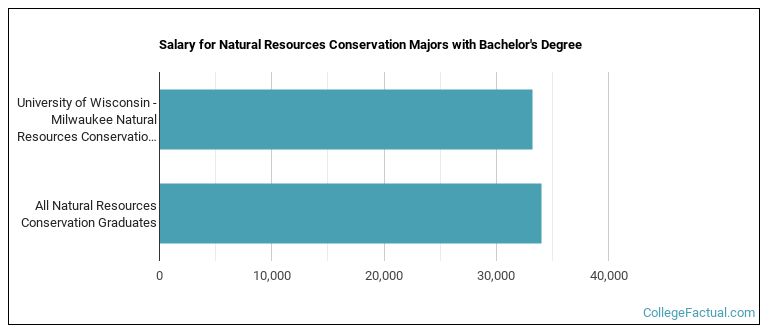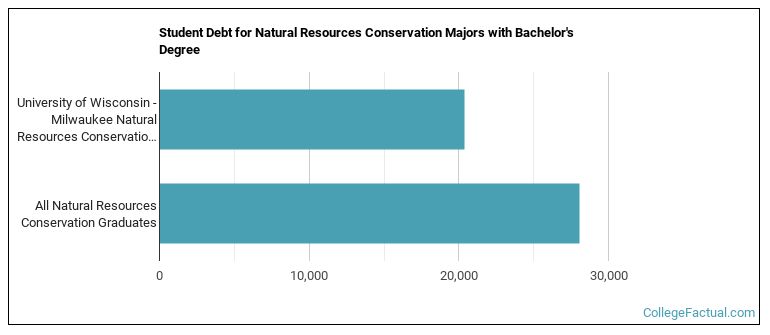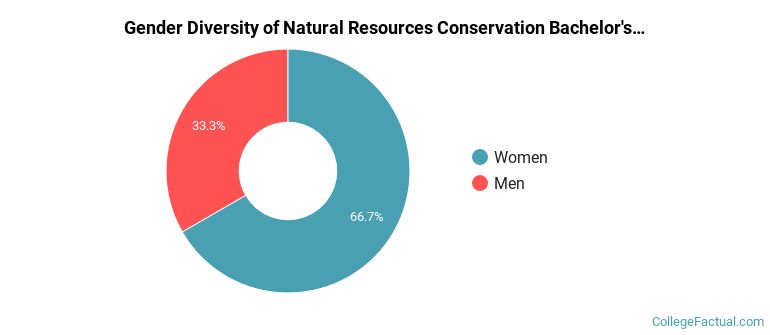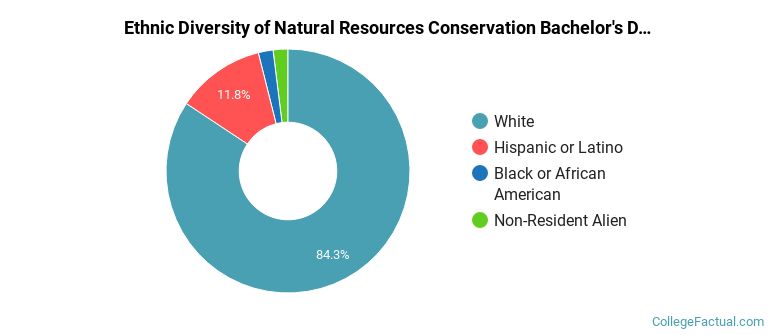 by our College Data Analytics Team
by our College Data Analytics TeamHere, you'll find out more about the major, including such details as the number of graduates, what degree levels are offered, ethnicity of students, average salaries, and more. Also, learn how UWM ranks among other schools offering degrees in conservation.
Jump to any of the following sections:
The bachelor's program at UWM was ranked #173 on College Factual's Best Schools for conservation list. It is also ranked #5 in Wisconsin.
| Ranking Type | Rank |
|---|---|
| Best Natural Resources Conservation Bachelor’s Degree Schools | 166 |
| Best Natural Resources Conservation Schools | 173 |
During the 2021-2022 academic year, University of Wisconsin - Milwaukee handed out 51 bachelor's degrees in natural resources conservation. This is a decrease of 6% over the previous year when 54 degrees were handed out.
Conservation majors who earn their bachelor's degree from UWM go on to jobs where they make a median salary of $33,262 a year. Unfortunately, this is lower than the national average of $34,020 for all conservation students.

While getting their bachelor's degree at UWM, conservation students borrow a median amount of $20,354 in student loans. This is not too bad considering that the median debt load of all conservation bachelor's degree recipients across the country is $28,049.

During the 2022-2023 academic year, part-time undergraduate students at UWM paid an average of $852 per credit hour if they came to the school from out-of-state. In-state students paid a discounted rate of $352 per credit hour. The following table shows the average full-time tuition and fees for undergraduates.
| In State | Out of State | |
|---|---|---|
| Tuition | $8,455 | $20,455 |
| Fees | $1,565 | $1,565 |
| Books and Supplies | $800 | $800 |
| On Campus Room and Board | $10,980 | $10,980 |
| On Campus Other Expenses | $3,600 | $3,600 |
Learn more about UWM tuition and fees.
For the most recent academic year available, 33% of conservation bachelor's degrees went to men and 67% went to women.

The majority of bachelor's degree recipients in this major at UWM are white. In the most recent graduating class for which data is available, 84% of students fell into this category.
The following table and chart show the ethnic background for students who recently graduated from University of Wisconsin - Milwaukee with a bachelor's in conservation.

| Ethnic Background | Number of Students |
|---|---|
| Asian | 0 |
| Black or African American | 1 |
| Hispanic or Latino | 6 |
| White | 43 |
| Non-Resident Aliens | 1 |
| Other Races | 0 |
UWM does not offer an online option for its conservation bachelor’s degree program at this time. To see if the school offers distance learning options in other areas, visit the UWM Online Learning page.
Take a look at the following statistics related to the make-up of the conservation majors at University of Wisconsin - Milwaukee.
| Related Major | Annual Graduates |
|---|---|
| Natural Resource Management | 32 |
More about our data sources and methodologies.